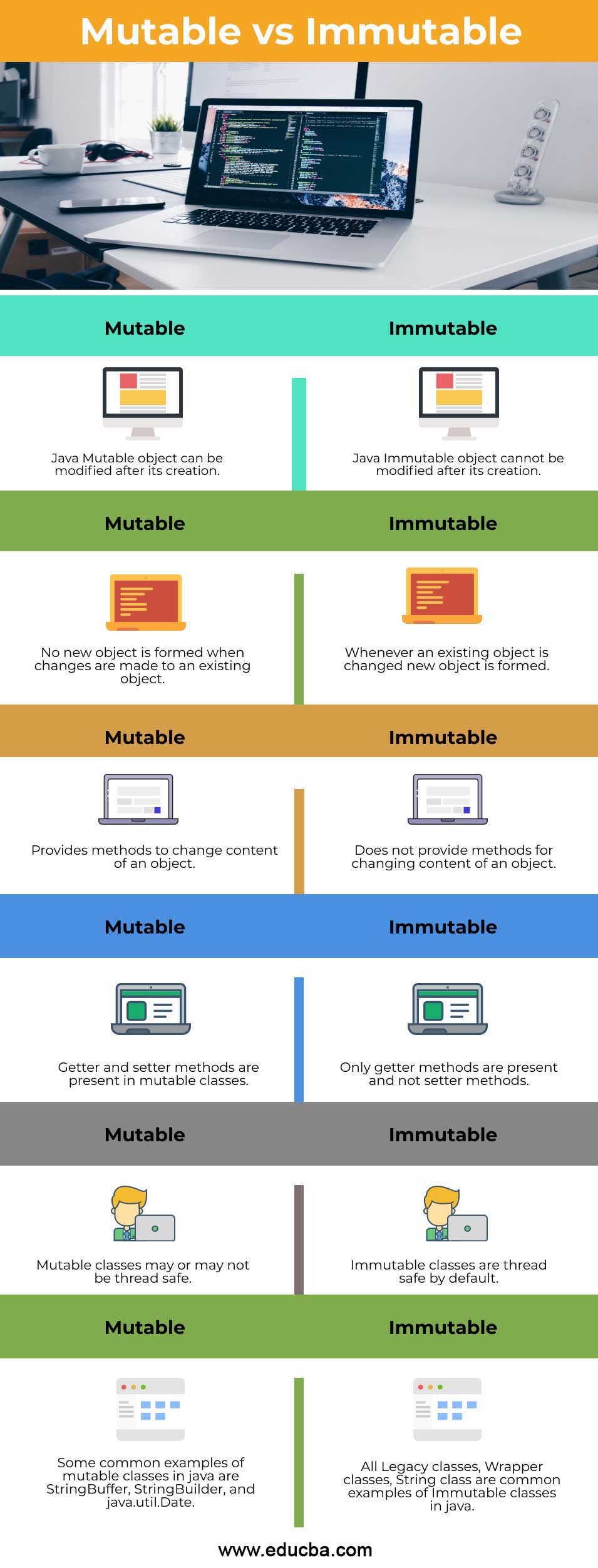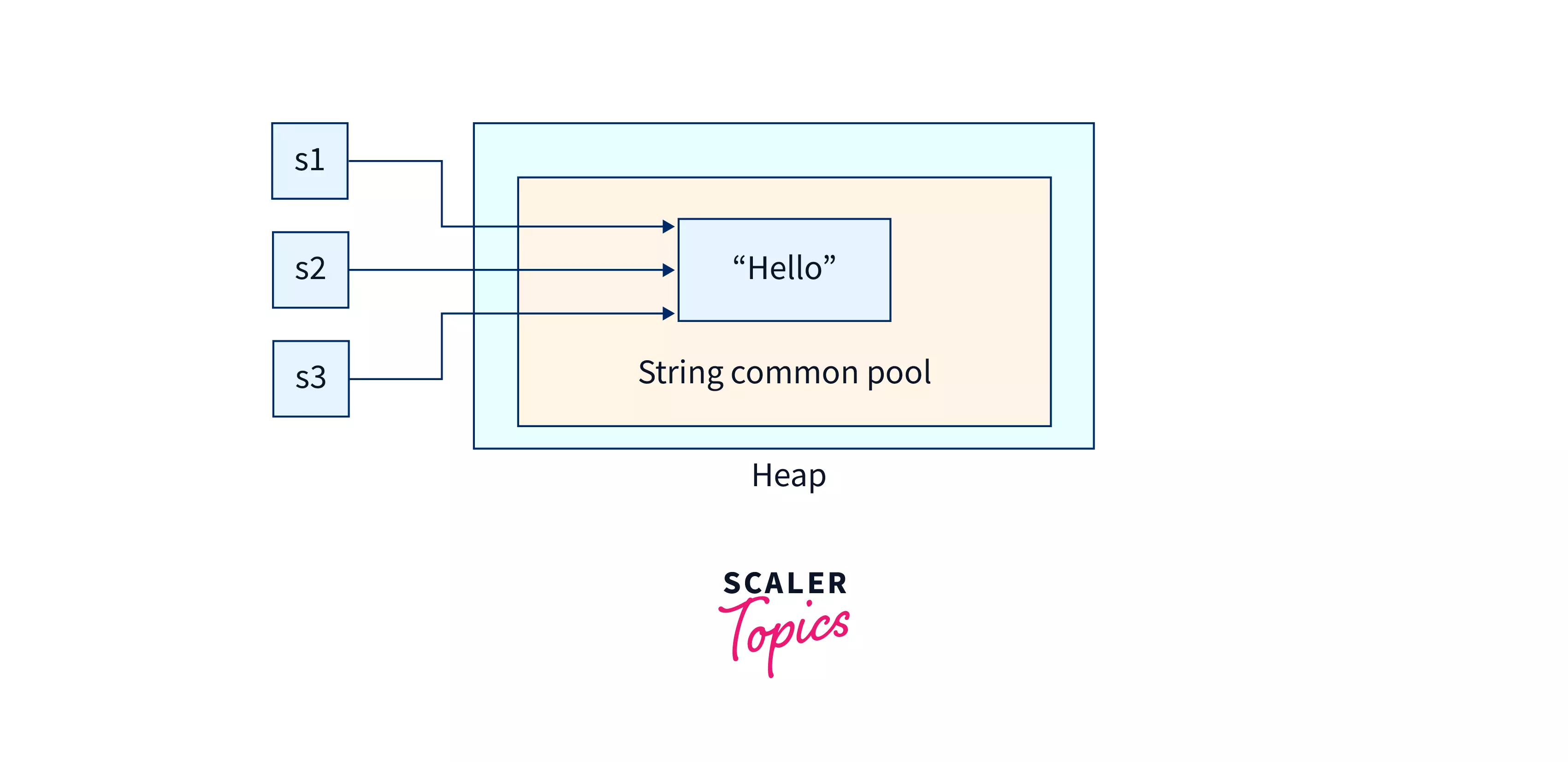Why Are Strings Immutable in Java? Best Practices and Use Cases
Why Are Strings Immutable in Java? Best Practices and Use Cases
Blog Article
What Is Unalterable Strings and How It Works
In the realm of programming, recognizing the idea of unalterable strings is vital for creating safe and durable applications. Immutable strings describe strings that can not be modified after they are produced, making certain information stability and predictability within the code. This fundamental concept plays a vital duty in various programming languages and uses an unique approach to handling data. By discovering the complexities of how unalterable strings function, one can uncover a globe of advantages and possibilities that can raise the quality and effectiveness of software program advancement.
The Basics of Immutable Strings
Unalterable strings, as a fundamental idea in shows, are personality series that can not be changed as soon as they are produced. This suggests that as soon as a string is appointed a value, that worth can not be altered. In languages like Python and Java, strings are unalterable objects, resulting in numerous implications in terms of memory monitoring and data honesty.
Among the key advantages of unalterable strings is that they offer a feeling of safety in data manipulation. Given that the content of an unalterable string can not be changed, it guarantees that the original data stays intact, reducing the threat of unintended changes throughout program implementation (Why are strings immutable in Java?). This residential or commercial property additionally streamlines debugging procedures, as developers can trust that once a string is specified, its value will not be inadvertently altered
When a new string is produced based on an existing one, instead than customizing the original string, the new worth is stored individually. Generally, comprehending the fundamentals of unalterable strings is essential for grasping programming concepts and maximizing code performance.
Advantages of Immutable Strings
Building upon the security and effectiveness benefits of immutable strings, their advantages reach improving code dependability and simplifying concurrent shows tasks. By being unalterable, strings can not be changed after development, which eliminates the threat of unintended changes in the data they store. This intrinsic immutability makes certain that once a string is created, its value remains consistent throughout the program's execution, decreasing the opportunities of insects triggered by unexpected alterations.
Furthermore, immutable strings contribute to code reliability by making it easier to reason concerning the state of a program. Since strings can not be altered, programmers can rely on that a string will certainly constantly hold the very same value, simplifying debugging and maintenance efforts. This predictability leads to extra trustworthy and secure codebases.

Execution in Shows Languages
Within various programs languages, the incorporation of unalterable strings is a basic element that affects how data is dealt with and manipulated within code frameworks. The application of immutable strings varies throughout different shows languages, with each language supplying its very own devices to support this concept.

In comparison, languages like C and C++ do not have built-in support for immutable strings. Designers in these languages must manually execute immutability by applying policies within their code to avoid direct modifications to string things.
Best Practices for Collaborating With Unalterable Strings
When dealing with unalterable strings in shows languages like Java and Python, sticking to best practices makes sure safe and efficient data control. Among the crucial ideal practices is to utilize StringBuilder or StringBuffer as opposed to straight manipulating strings, especially when taking care of extensive concatenation operations. These courses provide mutable alternatives for string control, helping to prevent unnecessary memory allotments and boosting performance.
Furthermore, when functioning with delicate information such as passwords or API tricks, it is crucial to avoid keeping them as visit the site plain text in unalterable strings. Using safe storage space systems like char ranges or specialized libraries for handling sensitive information assists minimize safety and security dangers linked with immutable strings.
Real-world Applications and Instances
Discovering useful executions of immutable strings in numerous sectors reveals their substantial influence on information stability and system reliability. In the health care field, immutable strings play a crucial function in making sure the safety and security and discretion of person data. By stopping unauthorized adjustments to delicate information such as clinical documents and prescriptions, unalterable strings assist keep conformity with rigorous personal privacy policies like HIPAA.
Banks also take advantage of the unalterable nature of strings to improve the safety of client information and transaction documents. Immutable strings assist avoid scams and unapproved alterations to financial details, supplying a robust protection versus cyber risks and making certain the trust and confidence of customers.

Verdict
To conclude, unalterable strings are repaired and stable series of characters that supply advantages such as string safety and security and enhanced performance in programming. They are implemented in various programs languages to ensure data honesty and safety. Best practices for working with unalterable strings include staying clear of straight adjustments and making use of methods that return new string objects. Real-world applications of immutable strings consist of data security, caching, and string adjustment jobs.
Unalterable strings refer to strings that can not be altered after they are produced, guaranteeing data stability and predictability within the code. When a new string is created based on an existing one, instead than modifying the initial string, the new value is kept independently.In languages like Java and Python, strings are unalterable by default, meaning that once a string item is developed, its worth can not be altered - Why are strings immutable in Java?. Finest methods for functioning with immutable strings include avoiding direct alterations and utilizing methods that return brand-new string items. Real-world applications of unalterable strings consist wikipedia reference of information file encryption, caching, and string manipulation jobs
Report this page